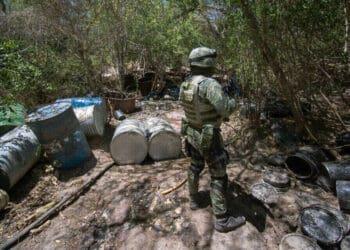The State of Corruption Risk in Latin America
The biggest-ever corruption and bribery investigation in Latin America has seen scores of business leaders and politicians end up in prison. So riveting is the story that it’s now been dramatized into a series and streamed on Netflix. Andy Webb-Vidal explains the real-life lessons that compliance officers and risk managers need to learn from the mess and explains why rudimentary due diligence needs to be enhanced with integrity-focused intelligence.
It’s exactly four years since Brazilian police publicly revealed the first details of Operation Car Wash, an investigation into a rogue foreign exchange dealer that ballooned to expose the country’s biggest-ever bribery and corruption racket. The probe has since uncovered layer after layer of how Odebrecht, Latin America’s largest civil engineering and construction firm — and several other major Brazilian companies — colluded and paid industrial-scale kickbacks over a decade to politicians, parties and officials to bag billions of dollars’ worth of public works contracts.
Detectives have disclosed some eye-opening features of the US$10 billion scandal. Odebrecht, for instance, had a secret office — euphemistically called its “structured operations” department — dedicated to channeling bribes via offshore bank accounts. Judges have sentenced several top executives, such as Marcelo Odebrecht, the disgraced former CEO of his family’s construction firm. Numerous top politicians have been prosecuted — twice former President Luiz Inácio Lula da Silva is appealing a 12-year prison sentence. And dozens of politicians are still under investigation.
Operation Car Wash has revealed the truly multinational nature of the criminal enterprise, too, with kickbacks used methodically to capture business up and down the hemisphere. In a landmark US$3.5 billion settlement in Brazil, the U.S. and Switzerland, in late 2016, Odebrecht admitted to paying US$800 million in bribes in a dozen countries – mostly in Latin America, but also in Africa. The investigation continues to reverberate beyond Brazil. In Peru, for example, President Pedro Pablo Kuczynski resigned last month after being overwhelmed by the storm, while in Colombia, one former minister has been imprisoned, and prosecutors are interrogating several legislators.
So, what does this landscape of corporate chicanery mean for compliance professionals and risk managers at U.S. and European multinationals with business interests and investments in Latin America?
Here are five reasons why Operation Car Wash marks an encouraging turning point for the region and five reasons why it makes sense to be skeptical that corruption won’t continue to thrive.
- The incessant mainstream media coverage of the scandal — and now a Netflix-streamed dramatization called O Mecanismo (The Mechanism) — has propagated a perception that corruption is spiralling out of control in Latin America, and that the escalating risk of being drawn in to a costly, reputation-demolishing U.S. FCPA or U.K. Bribery Act investigation has placed the region off limits. That’s wrong. Operation Car Wash shows that anti-bribery institutions are — albeit imperfectly — working, not that they’re failing.
- Operation Car Wash means that impunity for white-collar crime can no longer be taken for granted by the unscrupulous among Latin America’s top business people — the very same individuals who outside investors would seek out as their local partners. The same goes for many once-untouchable traditional politicians who have long seen taking bribes to facilitate business as a fringe benefit of office.
- Prosecutors in Latin America are becoming more willing to collaborate with their counterparts in other countries, making it easier to clamp down on transnational corruption schemes. Brazilian prosecutors sent over 200 cooperation requests to more than 40 countries, and prosecutors elsewhere returned several hundred evidence requests to pursue their own corrupt politicians.
- Judicial systems are becoming more effective. Many of the criminal convictions in Brazil would not have been secured had it not been for the use of leniency deals, which were made possible in 2013. The success of Operation Car Wash is beginning to spur more extensive use of such arrangements to investigate and dismantle financial crime structures elsewhere in Latin America.
- Operation Car Wash is encouraging more robust anti-corruption legislation across the region. Brazil is implementing a “clean companies” act, Peru is bringing in corporate administrative liability for firms involved in bribery and Colombia is introducing legal protection for whistleblowers. Furthermore, the ISO 37001 anti-bribery management systems standard is gaining traction in the region.
However, it’s not all good news. Here are five reasons to be doubtful that Operation Car Wash marks the dawning of a squeaky-clean, corruption-free future in Latin America.
- There are entrenched pockets of resistance to change among politicians in some countries. Brazil is a prime example of this. Deltan Dallagnol, Operation Car Wash’s coordinating prosecutor, says that legislators are clearly uninterested in passing meaningful anti-corruption reforms. A proposal of 10 measures drafted by prosecutors over a year ago was watered down beyond recognition by Congress, prompting prosecutors to threaten to resign en masse. The final verdict on whether Operation Car Wash will be seen as a watershed moment or a failure will be general elections due later this year, when the public will have a chance to replace its gallery of crooked politicians with new faces. Yet Brazilians are skeptical things will improve.
- The pace of Operation Car Wash has slowed, in part because the number of prosecutors on the case has been reduced. Among other implications, this is bad news for Brazil’s prospects of recouping the missing billions. Operation Car Wash prosecutor Paula Cristina Conti recently said that US$1 billion had been recovered — only 13 percent of the money traced through leniency deals. U.S. lawyers seeking the missing money from Bernard Madoff’s Ponzi scheme have taken a decade to recover 70 percent.
- Operation Car Wash has had distinct consequences in different countries in Latin America, showing that the region is far from being a homogenous one. Some of the most dramatic political and law enforcement repercussions have been seen in Peru. President Pedro Pablo Kuczynski was forced to resign on March 21 amid a political storm linked to the scandal. Former Presidents Alejandro Toledo and Ollanta Humala have also been indicted, and executives from several Peruvian companies are being prosecuted for colluding with Odebrecht. In Colombia and Ecuador, prosecutors have charged a number of politicians. Elsewhere, though, the impact has been limited. In Panama, the prosecution of implicated politicians has been bogged down in procedural wrangling; in Mexico, only one person is formally under investigation; and in Venezuela, where Odebrecht admitted paying US$98 million in bribes — the largest tranche outside Brazil — no prosecutions have yet been brought. While anti-bribery law enforcement is robust and improving in some countries, in others it is still very weak and subject to political interests.
- Corruption in Latin America is evolving. No longer is it the proverbial briefcase stuffed with cash and passed under a table to a minister to guarantee a contract. The new norm is sophistication: complex and multi-layered offshore structures, the elaborate use of third parties and financial fronts and the meticulous manipulation of public tenders, in collusion with officials, to favor particular bidders.
- When assessing the risks surrounding a new venture or routinely reviewing an existing relationship with a third party in Latin America, compliance professionals need to adopt an approach that takes into account multiple risk angles. More specifically, due diligence needs to go well beyond rudimentary, box-checking questionnaires and be enhanced with intelligence derived from human sources familiar with a subject’s integrity and the hazards specific to a given country and its regulatory environment.
In conclusion, then, Operation Car Wash is resulting in some changes for the better in the battle against graft in Latin America. But corruption will continue to flourish, and evolve, in many parts of the region.



 Andy Webb-Vidal is the CEO of
Andy Webb-Vidal is the CEO of 








